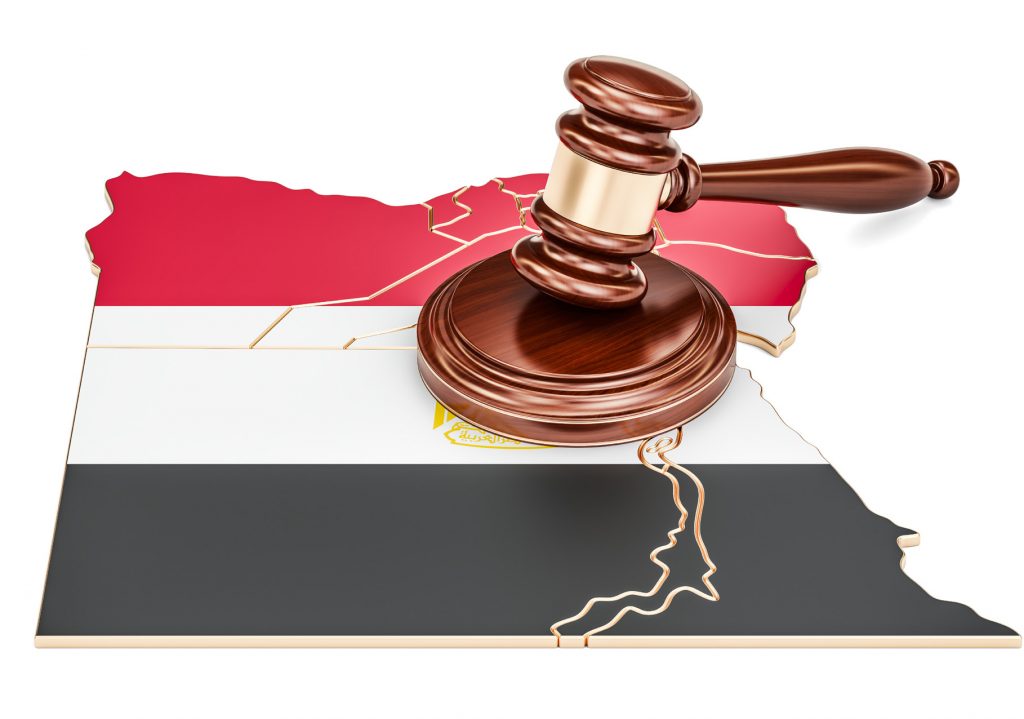- Arbitration
- Banking & Finance
- Capital Markets
- Commercial
- Competition
- Construction & Infrastructure
- Corporate / Mergers & Acquisitions
- Corporate Services
- Corporate Structuring
- Digital & Data
- Dispute Resolution
- Employment & Incentives
- Family Business & Private Wealth
- Innovation, Patents & Industrial Property (3IP)
- Insurance
Find a Lawyer
Book an appointment with us, or search the directory to find the right lawyer for you directly through the app.
Find out more
The Technology Issue
Decoding the future of law
This Technology Issue explores how digital transformation is reshaping legal frameworks across the region. From AI and data governance to IP, cybersecurity, and sector-specific innovation, our lawyers examine the fast-evolving regulatory landscape and its impact on businesses today.
Introduced by David Yates, Partner and Head of Technology, this edition offers concise insights to help you navigate an increasingly digital era.


2025 is set to be a game-changer for the MENA region, with legal and regulatory shifts from 2024 continuing to reshape its economic landscape. Saudi Arabia, the UAE, Egypt, Iraq, Qatar, and Bahrain are all implementing groundbreaking reforms in sustainable financing, investment laws, labor regulations, and dispute resolution. As the region positions itself for deeper global integration, businesses must adapt to a rapidly evolving legal environment.
Our Eyes on 2025 publication provides essential insights and practical guidance on the key legal updates shaping the year ahead—equipping you with the knowledge to stay ahead in this dynamic market.
The leading law firm in the Middle East & North Africa region.
A complete spectrum of legal services across jurisdictions in the Middle East & North Africa.
-
Practices
- All Practices
- Banking & Finance
- Capital Markets
- Commercial
- Competition
- Construction & Infrastructure
- Corporate / Mergers & Acquisitions
- Corporate Services
- Corporate Structuring
-
Sectors
-
Country Groups
-
Client Solutions
Today's news and tomorrow's trends from around the region.
17 offices across the Middle East & North Africa.
Our Services
 Back
Back
-
Practices
- All Practices
- Banking & Finance
- Capital Markets
- Commercial
- Competition
- Construction & Infrastructure
- Corporate / Mergers & Acquisitions
- Corporate Services
- Corporate Structuring
- Digital & Data
- Dispute Resolution
- Employment & Incentives
- Family Business & Private Wealth
- Innovation, Patents & Industrial Property (3IP)
- Insurance
- Intellectual Property
- Legislative Drafting
- Private Client Services
- Private Equity
- Private Notary
- Projects
- Real Estate
- Regulatory
- Tax
- Turnaround, Restructuring & Insolvency
- Compliance, Investigations & International Cooperation
-
Sectors
-
Country Groups
-
Client Solutions
- Law Firm
- /
- Insights
- /
- Law Update
- /
- September 2018
- /
- State-Investor Dispute Resolution Mechanisms under the Egyptian Investment Law
State-Investor Dispute Resolution Mechanisms under the Egyptian Investment Law
Nada Abouelseoud
 In 2015 the Egyptian Investment Law activated alternative forums for the resolution of conflicts and disputes relating to investment and investment contracts. Since their creation, the Ministerial Committee on Investment Dispute Resolution and the Ministerial Committee on Investment Contracts Dispute Resolution (“the Committees”) have been of particular interest for investors seeking to resolve disputes with the Egyptian Government in a time and cost effective manner.
In 2015 the Egyptian Investment Law activated alternative forums for the resolution of conflicts and disputes relating to investment and investment contracts. Since their creation, the Ministerial Committee on Investment Dispute Resolution and the Ministerial Committee on Investment Contracts Dispute Resolution (“the Committees”) have been of particular interest for investors seeking to resolve disputes with the Egyptian Government in a time and cost effective manner.
The new Investment Law No. 72 of 2017 (the “Investment Law”) provides new measures to ensure swift enforcement of the Committees’ decisions. The Law explicitly states that the decisions of the Committees, once approved by the Cabinet, are binding on public authorities and have the same effect as writs of execution. Investors are, however, at liberty to refer their disputes to litigation or arbitration at any time during the proceedings before the Committees.
The Investment Law aims at establishing an integrated system for receiving and solving local and foreign investors’ disputes, demonstrating Egypt’s commitment to contributing to an investment friendly environment. Upon receiving an investor’s request, the relevant Committee considers the matter and provides down a framework for solving it, as well as recording it for the purposes of maintaining a detailed database of investors’ problems.
To ensure the consistency and the sustainable effectiveness of the Committees, the Investment Law clearly states that provisions of Law No.7 of 2000 concerning the Establishment of Conciliation Committees are not applicable to investment disputes to which any Ministries or Public Legal Persons are party to.
The Resolution Committee
The Ministerial Committee on Investment Dispute Resolution (the “Resolution Committee”) considers any request, complaint, or dispute filed or submitted, where the State, one of its bodies, authorities, or enterprises is a party.
The Resolution Committee is headed by the Minister of Justice and consists of a considerable number of Ministers and Public Officials. Members of the Resolution Committee may delegate their roles to others, who may replace them in attending hearings.
When an application is submitted to it, the Resolution Committee requests the administrative authority against which the application is submitted to respond. The Resolution Committee’s Technical Secretariat, as headed by the Chairman of the General Authority for Investment and Free Zones, may also request the administrative authority to provide documents deemed necessary to examine the dispute.
By majority vote, the Resolution Committee shall issue reasoned decision within thirty days from the date of closing of the submission and hearings. Afterwards, the decision shall be submitted to the Cabinet for endorsement, upon which the decision becomes final and binding on the concerned administrative authority and has the same effect as writs of execution. Failure to enforce the Resolution Committee’s decision triggers the application of Article 123 of the Penal Code 58 of 1973, according to which the competent public official who intentionally precludes the execution of the Resolution Committee’s decision may be criminally liable, and even face incarceration.
Submitting an application to the Resolution Committee is without prejudice to an investor’s right to resort to litigation or arbitration. An investor may initiate proceedings before other dispute resolution forums at any time, whether during the proceedings before the Resolution Committee or even after its decision is delivered.
The monthly report of the Ministry of Investment and International Cooperation indicates a significant increase in the number of disputes submitted before the Resolution Committee. In the year 2017-2018 it received submission for 552 disputes, with an estimated value of EGP12.4 billion.
 The Settlement Committee
The Settlement Committee
The Ministerial Committee on Investment Contracts Dispute Resolution (the “Settlement Committee”) has jurisdiction to examine and settle disputes arising from investment contracts to which the State or an affiliate thereof, public or private, is a party.
The Settlement Committee is headed by the Prime Minister and consists of a number of Ministers together with representative members of administrative authorities. Members of the committee may not nominate others to replace them in attending hearings.
The Settlement Committee facilitates settlement between parties to investment contracts in a manner that achieves contractual equilibrium and ensures an optimal economic situation for the preservation of public funds and the investor’s rights in view of the circumstances of each case. To reach this purpose and upon parties’ agreement, the Settlement Committee may reschedule financial dues or rectify pre-contractual procedures, as well as extending the terms, periods, or grace periods provided for in the contract.
When a settlement application is submitted to the Settlement Committee, the file shall be transferred to the Settlement Committee’s Secretariat, which is headed by the Vice Minister of Justice for Arbitration and International Disputes. The Secretariat comprises a number of members of judiciary who are experienced in international investment disputes and international law matters. This ensures the Secretariat has a good understanding of the particularities and implications of investor-state arbitration, which promotes resolution of investment disputes.
The Secretariat conducts meetings with the parties to the dispute and their respective legal representative to examine the investment dispute and assist the parties in reaching a settlement. Once reached, the settlement agreement signed by both parties shall be submitted to the Cabinet for endorsement, upon which it becomes binding and enforceable on the concerned administrative authority and the investor. Filing an application with the Settlement Committee does not preclude the investor from initiating any other (parallel) legal proceedings against the State.
In conclusion, investors in Egypt now have more options available for resolving disputes with the State. Submission of disputes before the Committees offers investors a pre-emptive mechanism that seeks to avoid the expensive and time consuming proceedings experienced before other forums. The high-level composition of the Committees guarantees that disputes are examined by senior government decision makers who possess the necessary expertise to understand the particularities of investment disputes. Furthermore, the mandate of the Committees is of particular significance for foreign investors who are contemplating bringing a claim against Egypt under a Bilateral Investment Treaty (“BIT”). Those investors may resort to the Committees without being concerned about the potential application of the so-called “fork-in-the-road” clause, which generally limits the choice of an investor to submit disputes either to a local court or an international arbitration. The investor may now decide whether to resort to the Resolution Committee, Settlement Committee and/or litigation or arbitration.
“The creation of investment dispute resolution committees demonstrates Egypt’s commitment to an enabling investment environment.”
Al Tamimi & Company’s Dispute Resolution team regularly advises on Investment Dispute Resolution. For further information please contact Salma Kebeich (s.kebeich@tamimi.com) or Nada Abouelseoud (n.abouelseoud@tamimi.com)
Stay updated
To learn more about our services and get the latest legal insights from across the Middle East and North Africa region, click on the link below.


